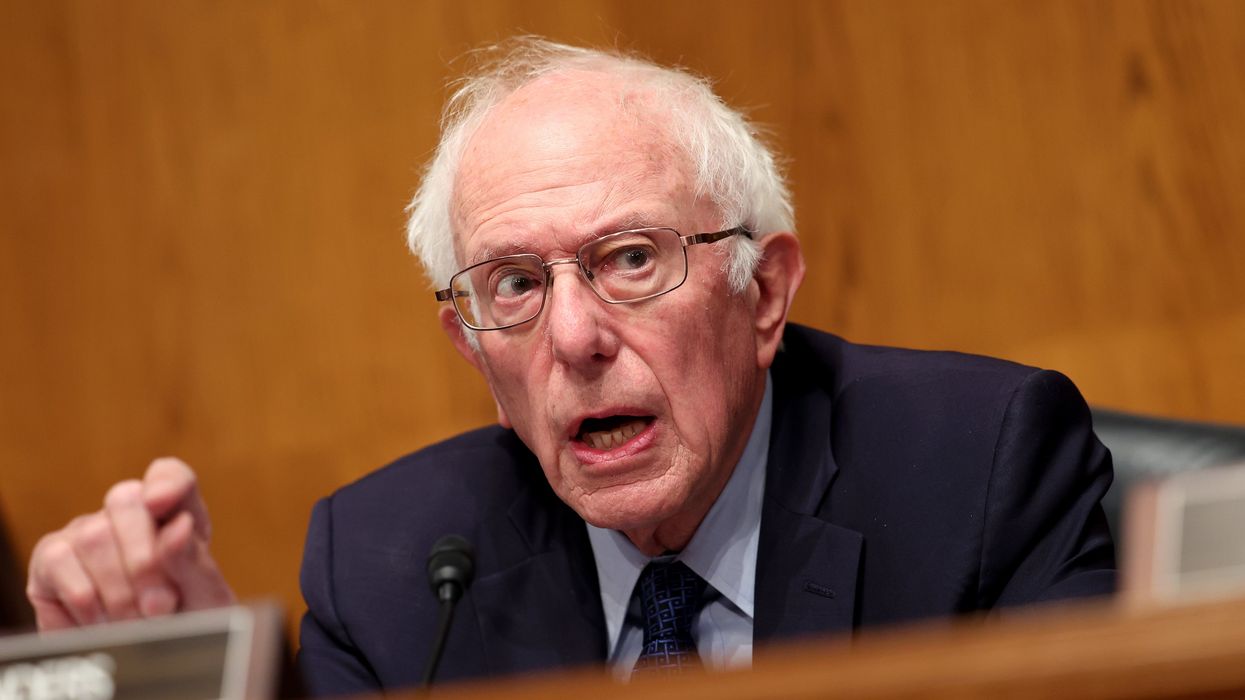The United Nations voted Christmas Eve to reconsider a global arms trade treaty, which the United States failed to ratify in July but was supported by U.S. officials shortly after President Barack Obama's reelection.
According to the Associated Press, the resolution to renegotiate the treaty in March was approved by a vote of 133-0 with 17 abstentions.
 A Nigerian U.N. soldier stands guard next to a cache of weapons at the house of a former dictator in Paynesville near the Liberian capital Monrovia, Oct. 16, 2003. Britain, Japan, Australia and others are pushing for a treaty regulating the arms trade worldwide, in a campaign that pit them against the National Rifle Association. (Photo: AP/Ben Curtis)
A Nigerian U.N. soldier stands guard next to a cache of weapons at the house of a former dictator in Paynesville near the Liberian capital Monrovia, Oct. 16, 2003. Britain, Japan, Australia and others are pushing for a treaty regulating the arms trade worldwide, in a campaign that pit them against the National Rifle Association. (Photo: AP/Ben Curtis)
Although some might think support for the treaty improved in light of the recent Sandy Hook Elementary School mass murder in Newtown, Conn., proponents of the treaty have argued in the past that it would not impact domestic gun regulation.
The draft treaty does not control the domestic use of weapons in any country, but it would require all countries to establish national regulations to control the transfer of conventional arms and to regulate arms brokers. It would prohibit states that ratify the treaty from transferring conventional weapons if they would violate arms embargoes or if they would promote acts of genocide, crimes against humanity or war crimes.
In considering whether to authorize the export of arms, the draft says a country must evaluate whether the weapon would be used to violate international human rights or humanitarian laws or be used by terrorists, organized crime or for corrupt practices.
Opponents of the treaty have argued that the wording was too vague and could open up the door to domestic regulation and infringement on Second Amendment rights in America.
The National Rifle Association and other gun lobbying groups fought against the treaty in July. Press TV reported NRA CEO Wayne LaPierre saying before the summer conference that it would not "stand idly by while international organizations, whether state-based or stateless, attempt to undermine the fundamental liberties… on which our entire American system of government is based.”
"Any treaty that includes civilian firearms ownership in its scope will be met with the NRA's greatest force of opposition,” LaPierre continued, according to Press TV.
After the Obama Administration endorsed the treaty in November, the NRA wrote about some of the worrying provisions in the ATT on its website:
Among the draft's most onerous requirements are those intending to burden and keep records on "end users," or gun owners. The draft states that "Each State Party shall maintain national records… Such records may contain… end users" and that "Records shall be kept for a minimum of ten years." If this obligation were to be enacted and followed, it could result in registration for any American that purchases an imported firearms.
Despite the insistence of a U.S. State Department official this summer that ammunition controls are not feasible and would have "significant administrative and financial costs," ammunition remains within the scope of the working draft. The draft states, "Each State Party shall establish and maintain a national control system to regulate the export of ammunition for conventional arms." In the explanation of its vote in favor of the resolution, Mexico made clear that it will continue to pursue its goal of including ammunition within the scope of the treaty.
LaPierre said in July the NRA's position "will remain the same on any treaty that could adversely affect the rights of American gun owners."
The negotiations will be held March 18-28 in New York.
Related:
(H/T: Think Progress)
The Associated Press contributed to this report.

 A Nigerian U.N. soldier stands guard next to a cache of weapons at the house of a former dictator in Paynesville near the Liberian capital Monrovia, Oct. 16, 2003. Britain, Japan, Australia and others are pushing for a treaty regulating the arms trade worldwide, in a campaign that pit them against the National Rifle Association. (Photo: AP/Ben Curtis)
A Nigerian U.N. soldier stands guard next to a cache of weapons at the house of a former dictator in Paynesville near the Liberian capital Monrovia, Oct. 16, 2003. Britain, Japan, Australia and others are pushing for a treaty regulating the arms trade worldwide, in a campaign that pit them against the National Rifle Association. (Photo: AP/Ben Curtis)


